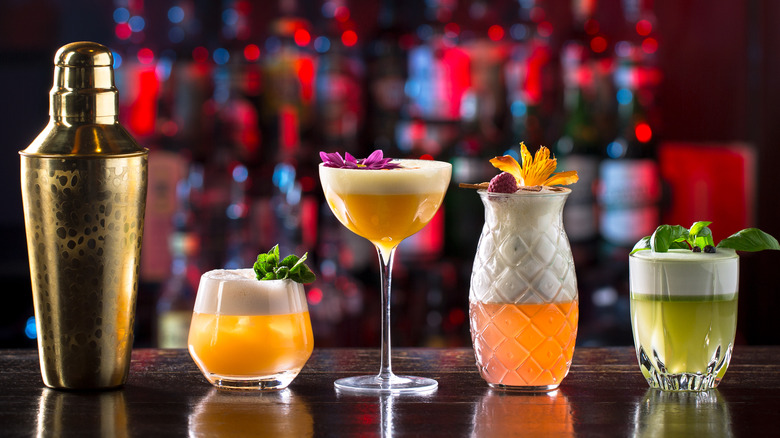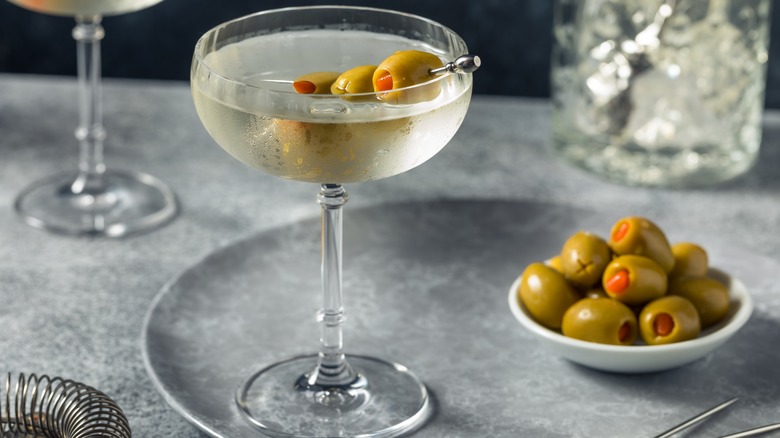The Difference Between Cocktails And Mixed Drinks Is All In The 3rd Ingredient
Many of us who patronize our corner dive bars or venture out now and then to explore the delights of chain-restaurant happy hours aren't necessarily too concerned with the proper terminology for our drink orders. We prefer to see things in fairly simple terms — sometimes we're in the mood for beer or wine, and other times we might want a straight shot of booze. The rest of the time, though, it's cocktails we're craving ... or are we?
The type of bartender who might term themselves a mixologist may also insist that not every mixed drink can truly be termed a cocktail. Of course, mocktails are mixed drinks, but the lack of booze disqualifies them from that label. There are other drinks, however, that we typically think of as falling under the cocktail umbrella (which is a charming pink paper one) that they'd say are nothing of the kind. A gin and tonic, although it's a well-established classic, might not be considered a cocktail, nor would a screwdriver or black Russian, and even martinis are iffy. How can this be? According to several different bartenders, it's because these drinks are all too simple to merit such a descriptor.
Mixed drinks are simple two-ingredient affairs
As Chicago bartender Keith Meicher tells Food & Wine, "A mixed drink has a minimum of two ingredients, but once you get to a third ingredient, it's a cocktail." According to Joe Stinchcomb, a bar owner in Mississippi, one little word can be a tip-off that a drink doesn't make the cocktail cut. As he explains it, "A mixed drink is a 'one and;' Jack and Coke, vodka and tonic, gin and tonic." Louisville bar owner Nickle Morris, however, defines things a bit more vaguely, saying, "I think it's about intention; if you don't put a lot of effort into the preparation, it's not a cocktail."
So what, then, are we to make of the martini? While none of these mixologists addressed this specific drink, we'd be inclined to consider it more of a "one and" since the only liquids in a classic martini recipe are gin or vodka plus vermouth (or vodka with no vermouth, if you're actress Florence Pugh) while any twists of lemon peel or olives in the glass are technically just garnishes. If you feel that the oils from the lemon peel or the je ne sais quoi from the olives are absolutely crucial to a martini's essence, however, then you might be inclined to argue the other way. Let's not fight about it — you say cocktail, we say mixed drink, let's both just say "cheers!" and enjoy our libations in peace.

